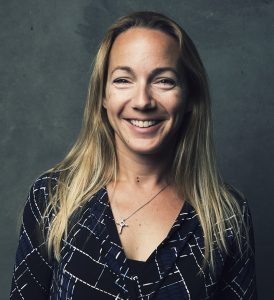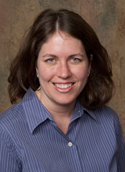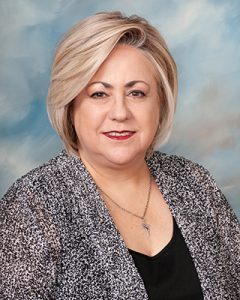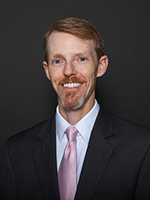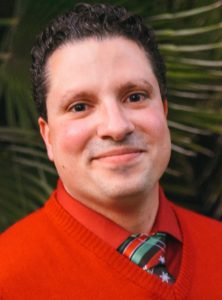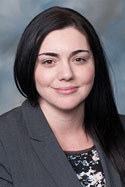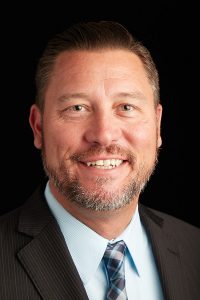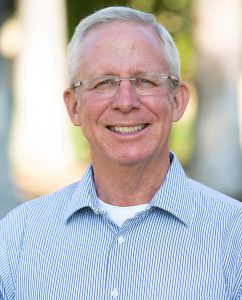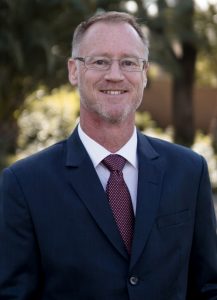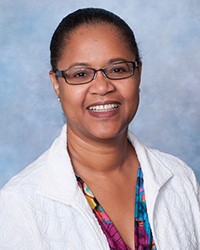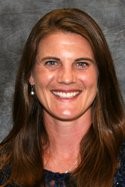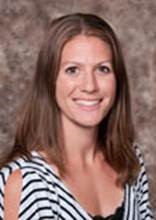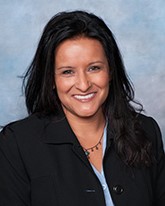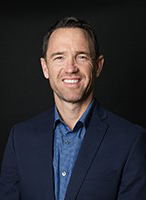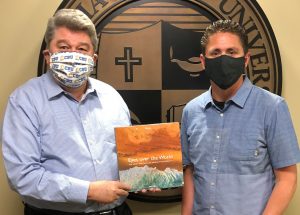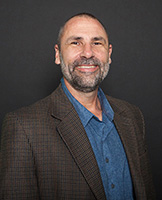In this issue…
Current News
Physician assistant students resume clinical rotations
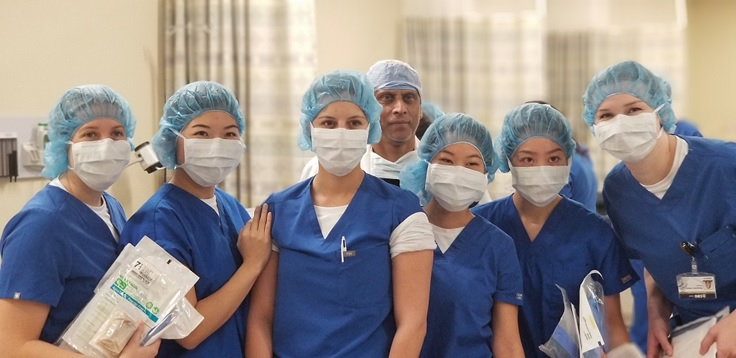 Justin Kent, a physician assistant studies graduate student at California Baptist University, has a renewed sense of calling for a career in the medical field. Kent contracted COVID-19 when he returned to his home in Las Vegas after CBU switched to remote learning to complete the spring semester.
Justin Kent, a physician assistant studies graduate student at California Baptist University, has a renewed sense of calling for a career in the medical field. Kent contracted COVID-19 when he returned to his home in Las Vegas after CBU switched to remote learning to complete the spring semester.
Kent said his case was a mild one. However, his experience motivated him more to serve others. When he and the other physician assistant students returned to complete their clinical rotations on May 18 after a nine-week hiatus, he was able to share his experience with his peers and patients.
“With so much trepidation striking society, my first-hand perspective of going back into clinical rotations has helped me better relate to patients with such fears,” Kent said. “I am able to relate with them and tone down unnecessary worry. Most people don’t know a COVID-19 survivor, so meeting me is their first real encounter with a positive side of overcoming this virus.
“My passion for medicine has certainly increased during this period and frankly, I love that this is the season and time God has called me into medicine,” Kent said.
Physician assistant studies students who are in their second year of the two-year program are required to conduct nine clinical rotations. Before returning to rotations in May, students had the option of withdrawing from the program and returning at a later date. However, all 28 second-year students decided to return.
By working and learning on the job, the students will learn skills they would not have had otherwise, said Dr. Heather Ontiveros, director of clinical education for physician assistant studies.
“We shouldn’t be running for the hills in situations like this. We should be learning how to best equip our students so that they can handle it and learn from this in a safe way,” Ontiveros said.
CBU students were given personal protective equipment (PPE) packet with the necessary items depending on what clinical site they were assigned, Ontiveros said. Students were also instructed not to see known COVID-19 patients due to the health risk, she added.
Ontiveros said the clinical team worked hard to get students back in rotations.
“We did it in a safe way,” Ontiveros said. “This is what we prepared them for. Though this is a new pandemic, infectious disease is not new.”
Alexa Hasen, a physician assistant studies student, said wearing the PPE has been an adjustment.
“The COVID pandemic has definitely changed the world of medicine as we know it. This experience has taught me about resilience,” Hasen said. “In my future career, I will remember to be grateful for the little things. And as always, I will remember why I got into medicine in the first place: to provide excellent care to the people who need us most.”
Samantha Baltazar, a physician assistant studies student, said the ER looked different when she returned in May, with areas for isolating COVID-19 patients. The pandemic brought continual changes to their clinicals, she added.
“It has required an immense amount of flexibility, perseverance, and faith,” Baltazar said. “This pandemic has instilled emotional resiliency that will be important to take with me into my future career.”
Aviation science back in the air after being grounded by COVID
 When the COVID-19 pandemic closed the campus at California Baptist University, it also grounded flights in the aviation science program.
When the COVID-19 pandemic closed the campus at California Baptist University, it also grounded flights in the aviation science program.
Most flight training stopped when CBU extended its spring break in March. Exceptions were granted to students who had scheduled a flight skills test with an FAA examiner to earn their pilot’s license. All flights were eventually grounded from April 8 through May 5.
“There were leadership meetings almost daily with flight operations, safety and maintenance as we continued to adapt to emerging and changing guidelines,” said Dr. John Marselus, department chair of aviation science.
Following those guidelines and collaborating with other university flight programs on how best to reopen while mitigating risk of COVID-19, a four-phase approach was developed, Marselus said.
Only students who were licensed pilots could fly solo in phase 1, which began May 6.
Phase 2 paired students and flight instructors for flight training. On June 5, the program moved to Phase 3, which allowed simulator training and two to three students per instructor. In each phase, students and instructors were assigned to specific aircraft to mitigate cross contamination, said Aaron Varela, chief of safety in the Department of Aviation Science.
Additionally, before flying, everyone completes a wellness questionnaire asking about COVID-19 symptoms and association with others who may be sick. In the aircraft, masks are not required but encouraged as long as they do not become a distraction, Varela added. After each flight, the student cleans the interior of the aircraft.
Phase 4 would allow a return to full normal operations, which hopefully will happen at the start of the fall 2020 semester, Varela said.
“When we fly, there is no difference except that the airspace is much less congested and it is quite a bit quieter on the radios,” Marselus said. “It is vital that all normal aviation safety precautions and discipline is still fully intact so once the student is starting up the aircraft to shutdown, it is all the same.”
John Mullins, assistant chief flight instructor, agreed that even with the safety precautions, the training environment has not changed much.
“Students are still eager and ready to learn, and the instructors are giving as much effort they can to ensure their students success,” Mullins said. “There are new physical challenges such as cleaning the aircraft and making sure social distancing procedures are being followed. Yet with all of that, the spirit of the instructors and students has not diminished.”
Patrick Shaneck, an aviation science sophomore, said flight training under COVID-19 conditions has been excellent.
“The restrictions implemented on flying delayed my training a little while, however, now that I am flying again, everything is expedited and I’m progressing very quickly,” Shaneck said. “CBU has done a great job at balancing safety and flight instruction.”
Musical passion brings CBU student back to the classroom
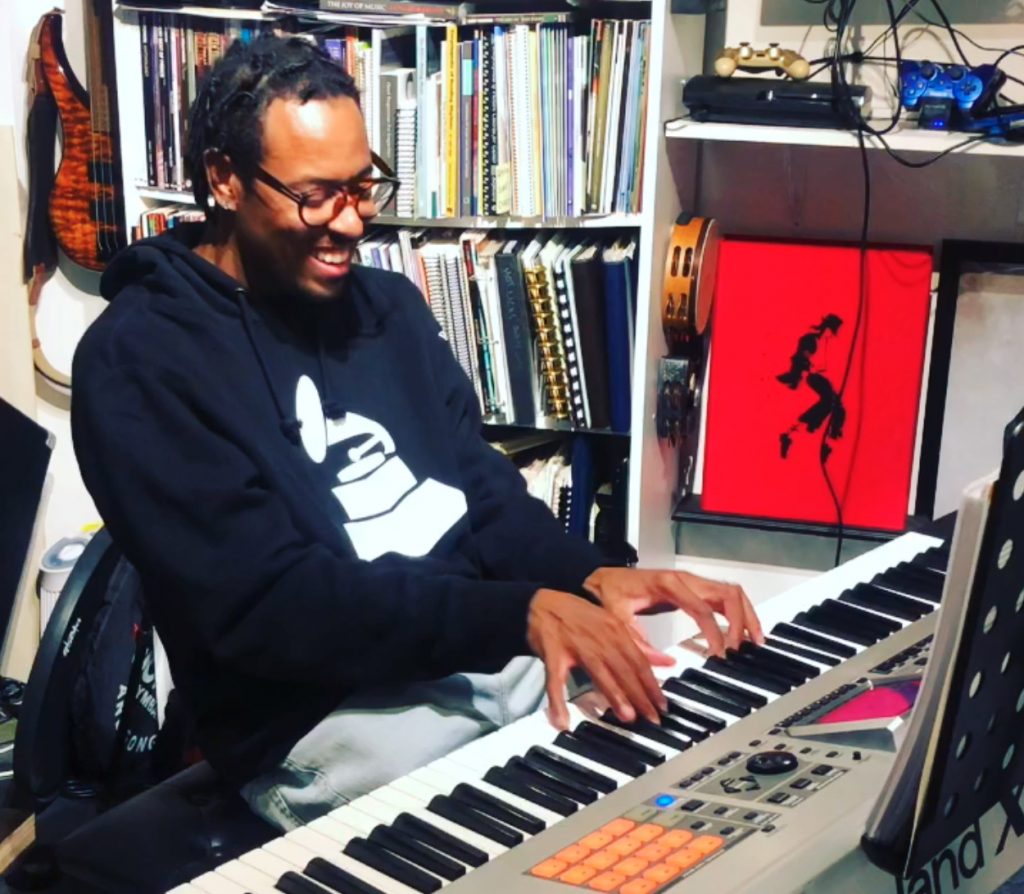 Robin Davis has more life experience than the typical undergraduate student at California Baptist University. At 39 years old, Davis, a music education senior, has spent time working in retail, theatre, music venues, entertainment and audiovisual production.
Robin Davis has more life experience than the typical undergraduate student at California Baptist University. At 39 years old, Davis, a music education senior, has spent time working in retail, theatre, music venues, entertainment and audiovisual production.
Now at CBU, Davis sings in the Lancer Chorus, the all-male singing group, and is the pianist for Chamber Orchestra. He also writes and produces his own music and is working on a gospel-rap album.
Davis was an operation manager when he lost his job in a company restructuring. The father of three considers it a blessing in disguise.
“Being in the workforce for 14-15 years, I understand a job can just be a job,” Davis said. “I really want to find a vocation that inspires me on a daily basis.”
Davis said music is his passion, which led him to enroll at the Shelby and Ferne Collingsworth School of Music at CBU. Davis had previously started working on a degree at a community college.
“I want to inspire children. Music has always been a part of my life. It’s always been something I love to do. It fills me up inside,” Davis said. “Music expresses things you can’t express with words. Music brings me closer to God.”
“I get most of my inspiration to write from living life,” Davis said. “I found it easier to express myself in written word. Whenever I’m going through something, I find it easier to write.”
Davis said his three biggest musical inspirations are Prince, Michael Jackson and James Brown. He also admires Frédéric Chopin.
“I was raised on hip-hop as a young kid,” Davis said. “But I actually enjoy all kinds of music. If it’s music and it moves you and it’s emotional, I think it’s great and it’s a wonderful thing.”
Davis said that getting back into schoolwork was not difficult, but the day-to-day schedule was a bit of a challenge. It was a balancing act with his classes and performances, his wife’s work schedule and taking care of the children, Davis said.
Davis has attended several different colleges over the years, but he said CBU is unique.
“I’ve never been at a school where the instructors care as much as they do. They are very invested in their students and that’s a very comforting thing to know,” Davis said. “I’m blessed and fortunate to have the opportunity to go to this school.”
Keeping the CBU community connected
While the CBU community is doing its part by working remotely, we want to make sure Lancers stay connected. Here is a glimpse of how staff and faculty members do this while working from home.
Alma Salazar, director of graduate admissions
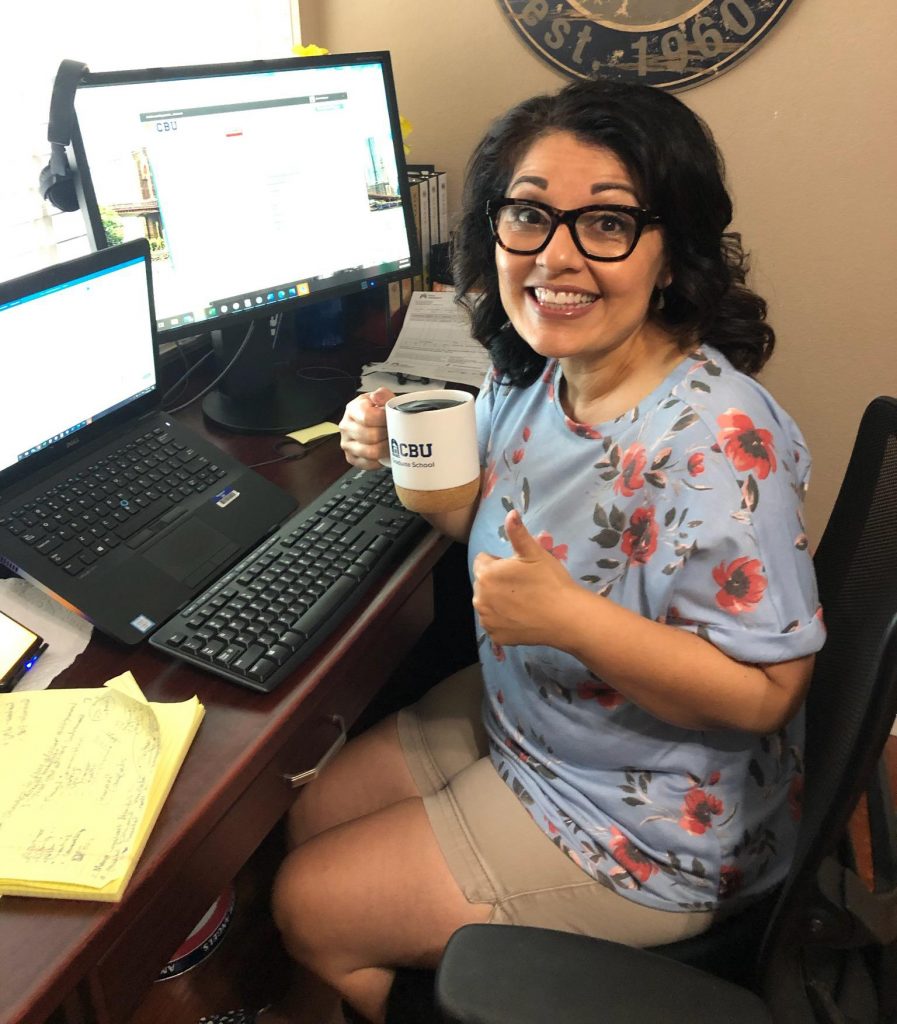 Describe where you work at home.
Describe where you work at home.
I have a home office that was originally set up for my three daughters when they were in school. Fortunately, with the three work spaces, there is plenty of room for my adult daughter to share the office with me. Unfortunately, simultaneous meetings get a bit loud at times so headsets are a must.
How are you staying connected with your department and students?
Our students may not have felt a major difference in service level. All of our counselors have been available since day one of the remote work date. We have been able to move to virtual office hours, initially making and receiving student calls via cell phones and then transitioning to WebEx Team for phone calls; and, we have provided over 35 virtual information sessions over the last 12 weeks resulting in higher show rates than on-campus sessions. Additionally, we have had a significant increase in applications year over year which reflects our students’ ability to move forward in our admissions process without any difficulties.
What is one thing you miss from working on campus?
I certainly miss the camaraderie between colleagues and the interactions with our students at key events. Oh, and I miss Wanda’s coffee and the wonderful employees!
Do you have children at home? How are you balancing being a parent and working at home?
I have 1 of 3 adult daughters living at home. No balancing necessary. My daughter and I are bonding more than ever in this different stage of life. It has been wonderful.
What is your snack of choice at home and why?
I am afraid I too caught the sourdough bug! We have been baking waaaay too much while at home but it is just so yummy!
During a WebEx meeting or class, has a family member or pet stolen the show? If yes, how?
My 10-month-old granddaughter stopped by to visit one day, and well, of course she came in to say hello and, game over! The oohs and aahs began. Also, we have experienced some close calls with team members.
Dr. Joshua Rodriguez, assistant professor of music theory and composition
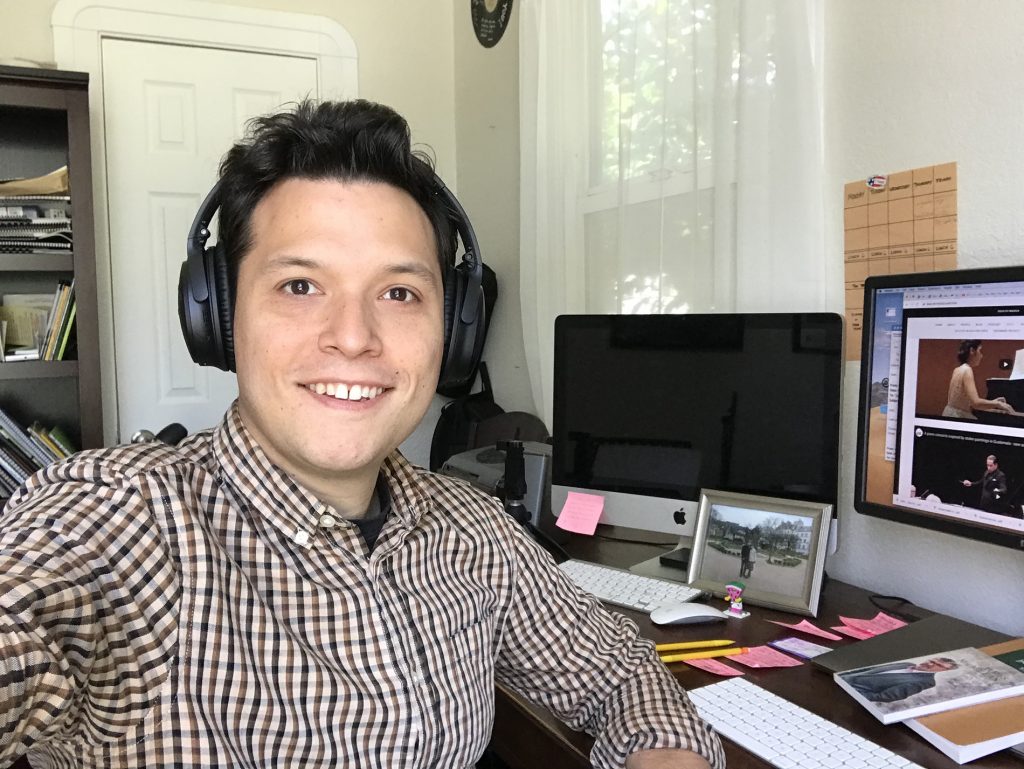 Describe where you work at home.
Describe where you work at home.
During quarantine, I moved my CBU office setup to my home office in downtown Riverside.
How are you staying connected with your department and students?
I have met online with CBU leadership in my department and have stayed in touch with colleagues and students through texts, emails, Marco Polo (a video messaging app) and FaceTime.
What is one thing you miss from working on campus?
I miss the in-person community. Nothing can replace this kind of tangible fellowship (especially over a meal at the ADC or Wanda’s)!
Do you have children at home? How are you balancing being a parent and working at home?
I have it easy because I do not have to juggle children and work. I sympathize with my colleagues who have done so during this time of remote instruction. Although working from home can be a total delight (and I love interacting with my spouse throughout the day), it can also be difficult to switch gears between work and family time. If I am not disciplined, work has a way of intruding into family time.
What is your snack of choice at home and why?
Takis (spicy rolled tortilla-chips) and homemade scones are the contrasting (but equally tasty snacks) that compete for my affection between meals.
During a WebEx meeting or class, has a family member or pet stolen the show? If yes, how?
Yes, at some point our miniature Schnauzer – Penny – will hop (or at try to hop) onto my lap during a video conference. She also howls when I or my wife (Dr. Mary Vanhoozer, adjunct professor of piano) play the piano.
Family Updates
Dr. Kristin Mauldin, assistant professor of psychology, conducted a webinar as a part of the Dr. Stone Memorial Webinar Series on May 27. It was called The Power of Reframing and Positive Self-Talk.
Dr. Laura Veltman, professor of English, had an article published on Intervarsity’s The Well (June 2). It was titled Listening for Breath: Some Thoughts on Reading the Diverse American Experience.
Dr. Linda-Marie Sundstrom, associate professor of public administration for Online and Professional Studies, had an article published in PA Times (June 3). It was titled Reimagining a Role for Highly Skilled Volunteer in Government Agencies.
Dr. Daniel Prather, professor of aviation science, presented two webinars as part of the Preparing the Drone Workforce webinar series, hosted by the National Association for Community College Entrepreneurship. He presented UAS Programs at Community Colleges on June 3 and Current Landscape of Unmanned Aircraft Systems at Airports on June 10.
Dr. Ashley Parks, assistant professor of public health science, and Matthew Lazari, adjunct professor of public health science, made presentations at the Association of University Programs in Health Administration’s annual meeting virtually on June 4. The research presentation was titled It’s All Fun and Games: Leveraging Gamification to Develop Decision Making Skills in Health Services Administration Students. Their poster presentation was titled Expanding Undergraduate Curriculum to Increase Preparedness for Work in Population Health.
Philip Breitenbucher, assistant professor of social work, facilitated a national webinar on behalf of the Children’s Bureau in the Administration for Children and Families on May 28. The title of the webinar was Court and Child Welfare Data Exchanges: Better Information for Improved Outcomes.
Mike Bishop, senior director of the Career Center, was a panelist on a webinar for the Western Riverside County Council of Government’s (WRCOG) Future Forward Series on June 25. The panel featured a discussion on the talent and systems-change necessary in the region to activate an innovation economy, while growing educational attainment and resilient skillsets for talent pipelines.
Dr. Jeffrey Gage, professor of nursing, was recently awarded the University of Missouri, Sinclair School of Nursing Alumni, Humanitarian of the Year award. The award was received for “outstanding contributions to vulnerable populations” in recognition of community work with fathers and families in Riverside.
The College of Health Science and the Department of Kinesiology hosted the 2020 Christian Society for Kinesiology, Leisure and Sport Studies International Conference on June 9. Originally scheduled as a three-day conference in Nashville, CBU volunteered to host a virtual conference. Dr. Sean Sullivan, professor of kinesiology, and Dr. Monica O’Rourke, professor of kinesiology, developed and coordinated the virtual conference. O’Rourke organized the sessions of national speakers and led the technology during the conference. Dr. Amy Miller, associate professor of kinesiology, Lisa Friesen, assistant professor of kinesiology, and Dr. Torria Davis, director of technology training, assisted in moderating conference sessions.
Dirk Dallas, assistant professor of graphic design, released a book, Eyes Over the World; The Most Spectacular Drone Photography (Rizzoli New York, May 2020). The book features photos by Dallas and more than 125 0ther photographers that were taken on all seven continents.
Dr. Jeff Cate, professor of New Testament, presented a paper for an online seminar of text critical scholars on June 18. The seminar replaced two conferences that were cancelled due to COVID-19: Society of Biblical Literature and Studiorum Novi Testamenti Societas. The paper was titled A Forsaken Variant in Mark 15:34.
Jannet Reyes, one stop student service advisor for Online and Professional Studies, and her husband, Alex, welcomed a daughter on June 5. Natalia Reyes weighed 6 pounds, 8 ounces and measured 19.5 inches.
Personnel Updates
